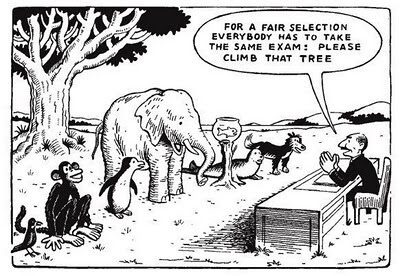“The educational system is supposed to train people to be obedient, conformist, not think too much, do what you’re told, stay passive, don’t cause any crises of democracy, don’t raise any questions, and so on.” – Noam Chomsky
The end is nigh.
Just… probably not in the way you’re thinking. Today’s youth is growing up in a society that drugs and manipulates them into obedience and denies them the tools needed to connect with one another and overcome personal struggles. And while this sounds obviously problematic to the average Joe, it’s actually a very effective way of propping up the Capitalist system (with a big, Marxist capital C).
Ever since the Industrial Revolution, industries have been searching for ways to make their processes ever more efficient and low-cost, initially giving rise to sweatshops and eventually outsourcing to developing countries when unskilled labor became too expensive. Now that a hefty percentage of jobs requiring unskilled labor are overseas and much of the American labor market is overeducated, industries rely on a different way of making their systems more efficient, because higher efficiency (in terms of both work hours and costs) means more money.
As Noam Chomsky explained (quoted at the beginning of this piece), the educational system is designed to shove children into a mold that prevents them from individual thought and dissent, essentially squashing creativity and progressive ideas. Those who make it through the system go on to university and graduate school (which are similarly designed to foster obedience to the system), get good jobs, and do those jobs well so their employers can present large quarterly profits to their shareholders.
Those who have trouble making it through the system are essentially offered three choices:
- The lucky ones (usually white males from comfortable homes) become billionaire entrepreneurs. These are the people who drive progress and are able to do so because they never conformed to the cookie-cutter “education” forced on most children. The downside to this is that they end up joining the part of society that requires this system to function as it does.
- The oppressed are often turned onto the streets and many are incarcerated in private prisons, where their contribution to for-profit companies is both their labor and their personal freedom.
- The unlucky ones are diagnosed with behavioral problems and prescribed what are basically legal forms of meth and speed – drugs which then force children to conform to the system in a way that their brains are not wired to do.
I personally think Chomsky is onto something: the educational system is a deliberate attempt to turn people into cogs in the system, and this has been the case for decades. In the 21st century, however, there’s another factor at play, and I don’t believe it’s by design (though I’m open to being convinced otherwise).
Simon Sinek, who presented one of the 25 most popular TED Talks of all time, gave an interview with Inside Quest, in which he talked about modern technology’s effect on the current generation’s abilities to form deep, meaningful relationships. He explains that receiving a text message or a “like” on Facebook triggers a dopamine response, similar to the response triggered by alcohol, drugs, and gambling – it makes us feel good and has the potential to be highly addictive. And while alcohol, drugs, and gambling have age restrictions that theoretically prevent adolescents from turning to these outlets during their most vulnerable years, smartphones and social media have no restrictions. It’s not uncommon in the United States to see a first grader walking around with his own smartphone.
Sinek goes on to explain that young adults, during one of the most stressful periods of their lives, turn to social media rather than their real-life peers to work through their issues and, as a result, never learn to rely on their peers. What ends up happening is higher depression and suicide rates – an entire generation of people who are just trying to get through life are giving up on it. Those who submit to “just getting through life” do just that – they work at unfulfilling jobs to be able to pay their bills and they do a good job in order to avoid being replaced by any of the other overeducated people of their generation who are also just getting through life. Their ambition is sucked away, causing the same result that the education system provides: people who are working hard in order to help others make money.
So what’s the solution, other than a complete overhaul of our economic structure? I may be biased, but I think the answer lies in our tradition.
Regarding the first problem of the educational system, we should ask Shlomo HaMelekh: “Teach a child according to his way…” (Proverbs 22:6)
While there are quite a few different commentaries on this verse, I understand it to have two meanings. The first is that a child should be taught in the way he’s wired to learn. Much research has been done about different learning styles and an educational system that addresses only one of them is archaic, to say the very least. I understand the second meaning to be that we should help our children find what it is they’re passionate about and support them in following that passions – help them find their “way” rather than spoon-feeding them biased and mostly useless information.
Regarding the other problem of losing our ability to connect with others, Hebrew culture has a built-in defense that occurs weekly. Don’t get me wrong, I’m not saying everyone needs to fully observe Shabbat. But there is definitely something to be said for taking a day out of the week to spend quality, face-to-face time with family and friends, disconnecting from devices and social media, and having conversations about topics that are deeper than what happened on Game of Thrones. We need this type of disconnecting and connecting if we’re going to have any hope of living lives where we aspire to more than just “getting through.”





